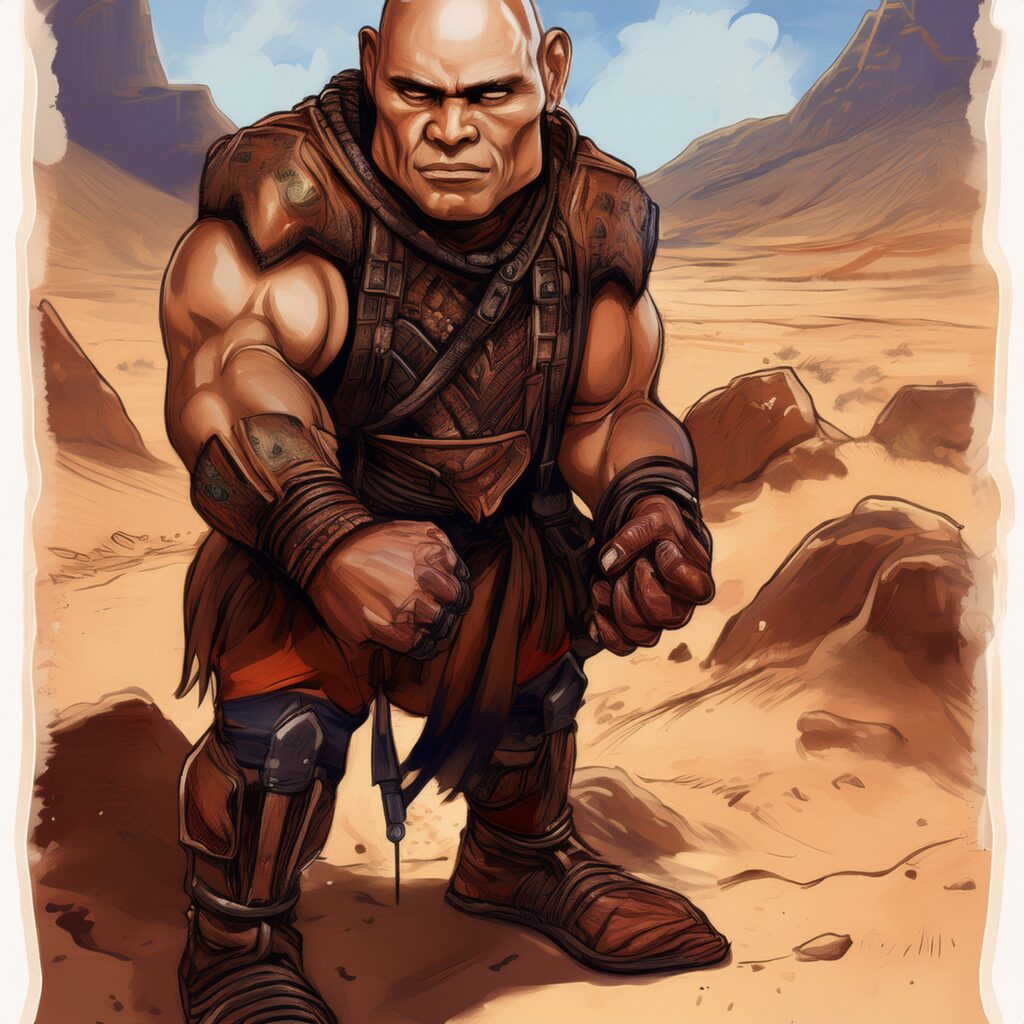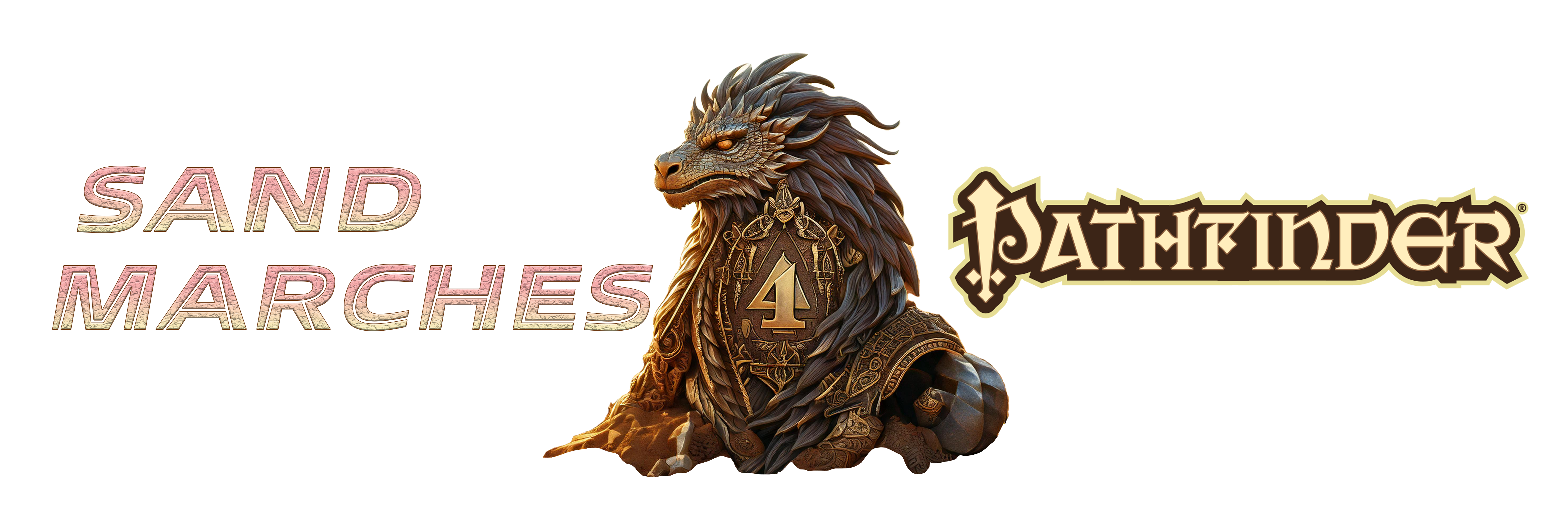Dwarf

Dwarves form a good part of the people encountered in the Tablelands. These strong and devoted beings live to fulfil their focus, a task they choose to devote their lives to. Stubborn and strong-minded, dwarves make good companions, even though their usual focused nature can be bothersome.
Personality: Dwarves are not frivolous or carefree and are often seen as dour or overly serious. The truth is that dwarves prefer to occupy themselves with meaningful tasks and often approach these tasks with an intensity rarely seen in other races. As such, dwarves make excellent labourers and take great pride in their accomplishments. However, their stubbornness can lead to difficulties. Dwarves will sometimes fail to listen to reason, attempting to accomplish what are impossible tasks.
A dwarf is never happier than when he has a cause to work or fight for – a focus. They devote their very beings to these tasks, labouring for weeks, years, even decades to the exclusion of other endeavours. A dwarf strives for the personal fulfilment he achieves upon completing a lengthy, difficult task. Dwarves live for their focus.
Dwarves that die while being unable to complete their focus return from the dead as banshees to haunt their unfinished work. A dwarf also rarely divulges his focus to anyone.
Physical: The dwarves of the Tablelands stand 4 1/2 to 5 feet tall, with big muscular limbs and a strong build. They weigh on average 200 lbs. Dwarves are hairless, and find the very idea of hair repulsive. Lives of hard work in the hot sun leave them with a rich tan and rugged, calloused hands and feet. Dwarves rarely decorate their skin with tattoos. They can live up to 250 years.
Relations: A dwarf’s relationship with others is often a function of his focus. People who help the dwarf accomplish his focus or share his goals are treated with respect and considered good companions. There is little room for compromise, though, with those who disagree with the dwarf’s focus. If they hinder the dwarf, they are considered obstacles that must be removed. Community is important to dwarves, and they have a very strong racial affinity. They rarely share their history with non-dwarves; it can take years for a stranger to gain enough trust to be admitted into a dwarven family circle.
Lands: There are three main dwarven settlements in the Tablelands: Kled, located near the city-state of Tyr, and the twin villages of North and South Ledopolus, located in the southwestern edge of the Tablelands. Some dwarven communities have developed in the city-states and in some small villages, while other dwarves have taken up residence with the slave tribes of the wastes.
Language: Athasian dwarves have a long and proud oral history. They have an old written language, but this is mostly used for writing histories. Dwarves ill not teach their language to outsiders; they prefer to keep that knowledge to themselves. The dwarven language is deep and throaty, composed of guttural sounds and harsh exclamations. Most non-dwarves get raw throats if they try to speak dwarven for more than a few hours. Many dwarves claim that they invented writing and that the characters of their alphabet were appropriated by the templarates of the human cities for their own languages. This “theft of sacred script” is a grievance that the dwarves have not forgotten and will likely never forgive.
Dwarf Society: Free dwarves form communities based on clans, and are much focused on family. Ties of blood are honoured and respected above all others, except the focus. Family honour is important to every dwarf, because an act that brings praise or shame in one generation is passed down to the family members of the next generation. There is no concept in the minds of dwarves of not following these family ties. Dwarven communities are found in many types of terrain, from mountains and deserts to near human cities. Most communities are small, rarely exceeding 300 members, and are usually formed of extended families linked by a common ancestor. Community leaders are called urhnomus (over-leader). Each clan is lead by an uhrnius (leader).
Most free dwarves earn their money through trade. Those that stand out in this category are dwarven metal smiths and mercenaries. Most Athasians acknowledge dwarven-forged metal to be among the best. Some dwarves even act as metal scavengers, seeking steel scraps wherever they can be found to sell to the smiths.
Dwarven mercenaries are highly prized because, once their loyalty is purchased, it is never changed. Most mercenaries choose their employer as a temporary focus, fighting for them with unshakeable determination and choosing death over defeat.
Role-playing Suggestions: Remember the intensity of your focus. This is the primary, central element of the dwarven psyche. A dwarf without a focus is a creature, filled with yearning. Breaking or ignoring a focus has social, philosophical, and spiritual repercussions. As stated before, dwarves who die with an unfulfilled focus are said to return as banshees – dwarves live in terror of this fate. For someone to stand in the way of your focus is an assault on you. There is no greater satisfaction than fulfilling a difficult focus.
Keep a serious, sober attitude nearly always. The only time you show your festive side is when you have recently fulfilled a focus, during the hours or days until you set a new focus. Only during these brief “days of fulfilment,” and only to other dwarves and your most trusted non-dwarven friends, do you show your full joy and sense of humour. But these days are also a time of vulnerability, for until you set a new focus you lose all of your special focus-related bonuses. For this reason, among others, you will likely always be looking for the next challenge that you can build your focus around.
The following game statistics apply to the dwarf player character:
Dwarf Racial Traits
-2 Dexterity, +4 Constitution, +2 Wisdom, –2 Charisma: Dwarves are both tough and wise, but also a bit gruff.
Medium: Dwarves are Medium creatures and have no bonuses or penalties due to their size.
Slow and Steady: Dwarves have a base speed of 20 feet, but their speed is never modified by armor or encumbrance.
Darkvision: Dwarves can see in the dark up to 60 feet.
Desert Delver: Dwarves have adapted to the extreme heat that can suddenly occur in the harsh desert. Dwarves with this racial trait gain fire resistance 1 and treat the temperature as 20 degrees cooler when determining the effects of extreme heat.
Dwarven focus: Dwarves receive a +1 bonus on attack rolls and saving throws, +2 on all skill checks, and +10% on any percentile roll relating to the character’s current focus.
Hardy: Dwarves receive a +2 racial bonus on saving throws against poison, spells, and spell-like abilities.
Stability: Dwarves receive a +4 racial bonus to their Combat Maneuver Defense when resisting a bull rush or trip attempt while standing on the ground.
Artisan: Dwarves receive a +2 Bonus to craft checks
Languages: Dwarves begin play speaking Common and Dwarven. Dwarves with high Intelligence scores can choose from the following languages: Elven, Giant, Terran, and Undercommon.
The Dwarven Focus
A dwarf’s focus is the central point of his existence. Nothing is more rewarding to a dwarf than to complete his focus. A focus must take at least a week to complete; anything less than that is too simple a task to be considered a focus. Dwarves receive the bonuses listed above when working to complete a focus. The task must be directly related to the completion of the focus, however. For example, Grelak, protector of his dwarven community, makes retrieving a sacred book stolen during a raid his focus. After a week of gathering clues, he sets out to retrieve the artifact from its current possessor, who hides in a trading post two weeks away. En route to the outpost, he encounters a lirr; while battling this foe, he receives his focus bonuses, because he is trying to reach the book. Later, Grelak stops in Nibenay for some rest, and gets in a brawl. He doesn’t receive any bonuses, because he isn’t actively pursuing his focus.
